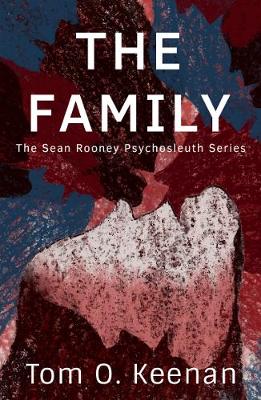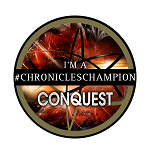
‘Verbs and Nouns’.
You are what you do, Stephen Fry says. We are verbs or nouns, a doing thing or a thing. We are all doers, we all do something. Me, I write, when I am not doing other things, like mopping floors, looking after guests. You build, look after others, provide a service, give your support, your time, love. Me? I write. Why? I can’t not do it. It’s in me, from me, by me. It is what I do. It’s like a disease. I’ve got it and can’t get rid of it. It has invaded me, taken control of me, it may kill me. I write. It’s what everyone can do, if they get the bug, because everyone can write. They write every day, every one of them: texts, letters, notes, reports, bookies lines. We all do it. It’s an essential means of communication for all of us. We talk and we write. Writing is talking on paper, same thing. Only difference is that talking is mostly spontaneous, where writing is the deliberate outcome of thought. Thoughts on paper, that’s what it is. Don’t think it is anything special, talk is more special, look at the great orators of history: King, Thunberg, Mandela, Hitler! Much more powerful than writing, and yet a book, a poem, a song, can move the world. It is the expression of human beings; it makes us different from animals, not that animals can’t communicate or move us by their love, they can, but we can move people by our words: written, spoken, sung.
Great writers have something important to say. I won’t say I am a great writer, the Booker eludes me again this year, but I have something to say. You may think it is something interesting, you might be right, you might be wrong, but I have written a book and I am pleased I have, it feeds my disease. I have written more than one book, but I am only on here because I have a story to tell in this book. We all have stories to tell. I have heard my friends’ stories, they are better than mine, so they better write them down, and they may write a book. That would make them doers for sure. That I wrote a book surprises me, books are written by writers after all; yet I wrote a book and it was published. What is a writer if not someone who wrote a book? What makes a writer, however? Life experience, an imagination stirred at an early age, reading a lot, having an ability to structure and plot, and above all to write and rewrite and rewrite, because that is writing, and never to give up; maybe that makes me write, a verb; a writer, a noun? I am so pleased I am not an adverb, ‘he writes poorly’. Or an adjective, ‘he is a bad writer’. There’s no difference between us other than what we do.
I wrote a book and so could most people. It’s a funny thing, unless you do something, you’ll never know you can.
The Family, a description
Here in Glasgow, the mob is one. We have The Family, however, a collective of twelve heavy crime lords that have formed to fight the influx of migrant gangs. Glasgow has a new menace, though, with the arrival of an ISIS cell which kidnaps a Glasgow cop. However, the Family has eyes and ears on the streets and Police Scotland needs it to find the cell and save the police officer. Sean Rooney, our beloved erstwhile forensic profiler, psycho-sleuth, has learned from his protégé, Johnston, the previous father. Rooney has become the new father of the family and he needs to save the city and the police officer from ISIS.
Suffering mental illness with godly delusions, can he employ his ‘twelve disciples’ and save the cop? And can The Family do the city a favour and ‘set aboot’ the terrorists? Do you remember the Glasgow Airport attack, where John Smeaton, the brave baggage handler who tackled them, said, ‘Glasgow doesn’t accept this. This is Glasgow; we’ll set about ye.’ I think ‘Smeeto’s’ statement summed up ‘the Glasgow Way’, like Sir Sean in the Untouchables, ‘This is the Chicago Way, you send ours to hospital we send yours to the morgue.’ Well, the Glasgow Way is: ‘you send ours to the morgue and we send yours to KFC, fried and battered and served up with curry sauce!’
Godfather 2 was an influence, the father, the family, the code amongst hoods, to kill each other but keep the everyday punter out of it; be vigilantes if necessary to rid the streets of adversaries, in a sense doing the dirty work for the Police and look after your family.
Glasgow’s gangland is of course notorious, going back to the razor gangs, the No Mean City, the Malky Fraser, the open razor. They were fighting each other then though. Now they get together to fight new adversaries, international gangs moving into Glasgow. The FBI has said there are now 25 foreign mafia gangs operating in Scotland. Albanian and Romanian crime gangs (there was a recent sex slave bust in Glasgow), the Russian mafia, Bratva are salting money here, and Somali gangsters are flooding the streets with crack cocaine. Meanwhile, the Glasgow gangs are projecting legitimacy, the leaders have become business men, they salt away proceeds of crime, they drive big cars, they live in massive Victorian villas in Glasgow.
Well, that’s just the back story. There’s more, as you would expect. The Father is like Godfather 1 with depth, The Family is like Godfather 2 on speed.
The Family continues the inherent themes to be found in The Father: Duality, psychological conflict, abuse, coercion… alcohol consumption. Duality: the good and the bad, in men and women, and in Rooney, and power and control, this time of a powerful group of men, by a man driven by godly delusions. How many great power mongers in history have been driven by godly delusions, discuss!
The Family is more contemporaneous though, emphasising the changing nature of gangland Glasgow, hoods in suits, businessmen salting their money from the proceeds of crime into legitimate business, but all is not well in this business environment: migrant gangs are muscling into their act and they don’t like it. Rooney, the new Father, exploits this paranoia to the full to turn The Family against ISIS, almost as a vigilante exercise, to save John McCourt, a police officer kidnapped by ISIS in Glasgow. There’s a new interesting character, Officer John McCourt, the man who questions himself over why he became a police officer. In a hard place of hard people, he knows why: a philosopher’s mind and a boxer’s body, he has opportunities every day to exercise both.
The Family is therefore the follow up to The Father, the second book in the Sean Rooney psycho-sleuth series. The Father is the first book in the series but The Family is written in a way you can read it first, and The Family afterwards, almost like a prequel, or one can read one after the other, Book One then Book Two.
It is said that writing is a socially acceptable form of schizophrenia; that being an author is like having a devil whisper in your ear. Well, this devil kept saying to me ‘make The Father dark, but make The Family darker.’
The Father emphasises power, authority and control. The father, generally, is a hero; this father is an antihero, however. A good father epitomises love, care, strength; but when you remove these good characteristics, you are left with power, authority and control. When you remove the light, you have the dark. I like dark subject matter tempered by dark humour; emphasising dark but showing light.
Glasgow can be a dark place with great light and warmth, the natural home of the Tartan Noir. There is a duality in Glasgow which I confess to exploiting. The Father emphasises duality. I have always been interested in duality. It’s in all of us, the good and bad, the right and the wrong, the ying and the yang.
I used the narrative voice in the book to provide some light sardonic Glasgow humour to a dark subject matter. I also used it to provide duality in Rooney, my protagonist, where the good and the bad, the doubt and the ego, the right and the wrong, all vie for authority in his head. Almost like Gollum in the Lord of the Rings or Jekyll and Hyde, leaving the doubt open as to who is going to triumph.
‘Can a good man be made a bad man?’ is about change—metamorphosis. This has a premise that we all have the potential to do bad things when or if faced with an exceptional set of circumstances. Faced with critical challenge, people have been known to change. I was influenced by Dostoyevsky’s Crime & Punishment, where we have a bad man with a conscience, vying to be a good man. In The Father we have a good man who needs to become a bad man overcoming his conscience.
In The Father, challenge is emphasised by the battle that goes on throughout the book between Rooney and Johnston, the Father. However, where Hemingway’s Old Man and the Sea is a physical battle, between an old man and a large, powerful tuna, this is a psychological battle between a powerful manipulator of men and a weakened, broken person; where, every psychological weapon is used, in particular a double bind placed on Rooney, where he is being forced to kill a man, his nemesis, as the Father’s last act of control, or the Father will kill the person Rooney respects most in the world. To defeat this man, Rooney has to change.
Book three of the series, The Son, will be out early in 2020. This will mark a departure for Rooney and Jackie when they move to the Highlands of Scotland to escape the past, but has the past caught up with them? The plot is thick, the pursuit is tortuous, the payoff is to die for.
The Family, an excerpt.
Malky Fraser has this name for two reasons. First, his name is Malcolm Fraser and second, “Malky Fraser” is known in Glasgow as rhyming slang for an “open razor”, the preferred one time weapon of many Glasgow hard men. Malky, a famed proponent of the “tool”, had drawn it down the side of many faces, those either unable or unwilling to pay loan sharks. “Give them the Malky,” was a common term used in Glasgow.
Though the razor gangs are long gone, he is still associated with the term. Then, he was also known to favour six-inch nails, nailing unfortunate men to the floor in front of their families in mock crucifixion, through the palms of the hands and the feet into the living room floor of their tenement flats. These days, however, this street fighter and survivor of the gang wars is a cold-blooded assassin, his trademark known as the “Glasgow send-off”, where, after giving his victim a severe kicking, he would put a shotgun up his back passage and pull the trigger, sending shot up through the stomach and into the heart; always lethal that one. This man would kill if the money and reason were right. This time they were. The cash substantial: ten bags: ten thousand, used bills.
The reason: hit a heavyweight player and previous gunrunner to the UDA. Malky had killed for the IRA in Glasgow during the troubles, but this man had evaded him. For him, this was unfinished business. This one was unusual, however. He was not to know the name of the customer, only the target.
Davy enjoys his daily swim in Woodside Baths, an old Victorian swimming baths near Charing Cross in Glasgow. His usual bodyguards—two street players elevated to the position based on their ability to keep their heads while seeing off some serious attacks—at his side. He is a creature of habit, same place and same time, which just happens to be the key feature in most hits. Most gangsters survive by avoiding this rule. Davy isn’t stupid, though, he thinks he’s untouchable. He doesn’t believe anyone in Glasgow would have the balls to threaten him or his family.
He loves the old baths, which he had attended since he was at school, not far from there in Maryhill. They had seen better days, however, the wall windows and roof skylight painted over with bitumen to stop leaks and save the cost of major repairs. It gave an eerie and gloomy effect in the water, the arc lights casting shadows of the swimmers on the floor of the pool.
As he swims, he doesn’t notice a man with goggles doing the rotational route up and down the side of the pool. This man had been here for the past three days, same time as Davy. Nor would he have noticed him observing the bodyguards as they hung over the banister looking down on the pool, watching their movements, as he also had for the past three days.
Malky had noticed they took turns to go outside for a smoke, leaving one of them to guard Davy. Each day, Davy would do his normal fifty lengths, get out, rinse himself in the communal showers, and move to the same cubicle he always used to dry and dress; another routine. He enjoyed this cubicle just off the corridor upstairs. There were cubicles on the main drag, but he likes this one in particular. It is tucked out of sight, however, which is a vulnerability. All the while he’s watched by the bodyguards. They were aware, however, that any assailant approaching him would also be in trunks and in a hand to hand, even if he had a small knife hidden in his trunks, they knew Davy, a hard battler, would have no trouble dealing with him until they reached there.
This day, one bodyguard is caught up in a chat outside with an attractive young woman. He isn’t there as Davy leaves the pool. The chat and the young woman was set-up with the promise of a bag of cocaine. The remaining bodyguard is in his usual place, not perturbed by this change in routine. All is quiet and calm. The pool is empty, apart from two men who have since left it to return to their cubicles. Davy finishes his fifty lengths, has his shower and moves to his cubicle. All appears well.
All is not well, however, and the bodyguard doesn’t hear the pop of Malky’s Beretta 92, silencer fitted, as he stands on the bench of his cubicle, pulling himself up until he’s balanced, elbows into Davy’s cubicle, where he fires a true bullet into the middle of Davy’s head. Davy crumples to the floor. He makes no sound or groan as he goes down, such is the accuracy of the shot. Malky would have been happy to dispense with his trademark on this occasion. He has done what he had gone there to do, but Davy’s body has crumpled to the floor with his backside adjacent to his cubicle. Never one to miss a chance, Malky gets on the floor on his side and pushes his gun into Davy’s arse and fires. There’s a deeper sounding pop this time, as the bullet explodes deep into Davy. The job’s done well and he has left his mark. A success!
You can purchase The Family Here.
Happy Reading!






